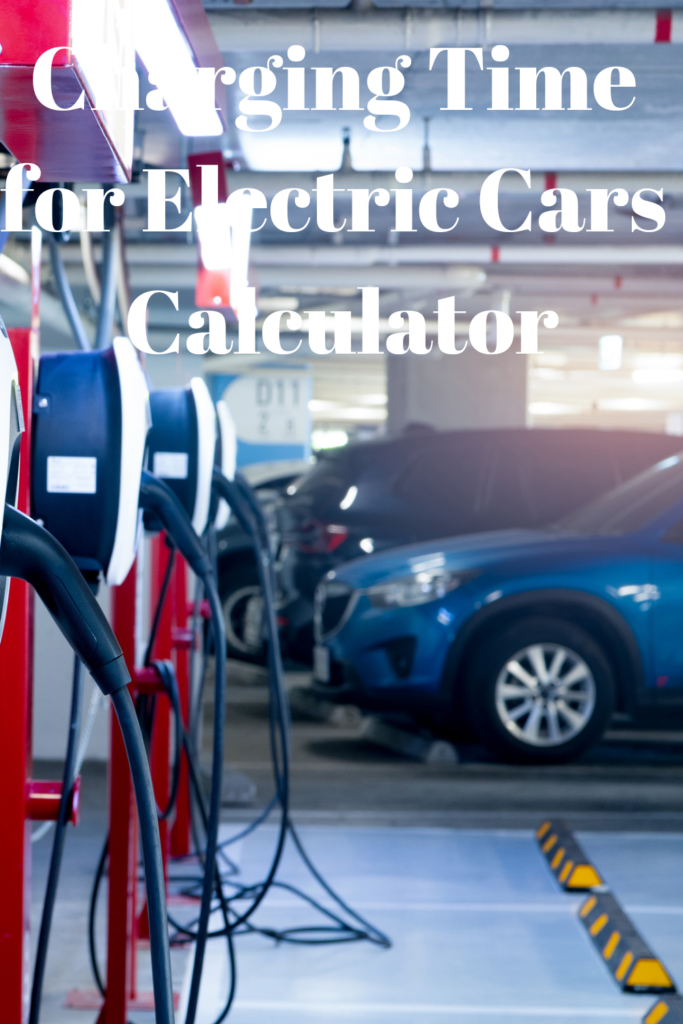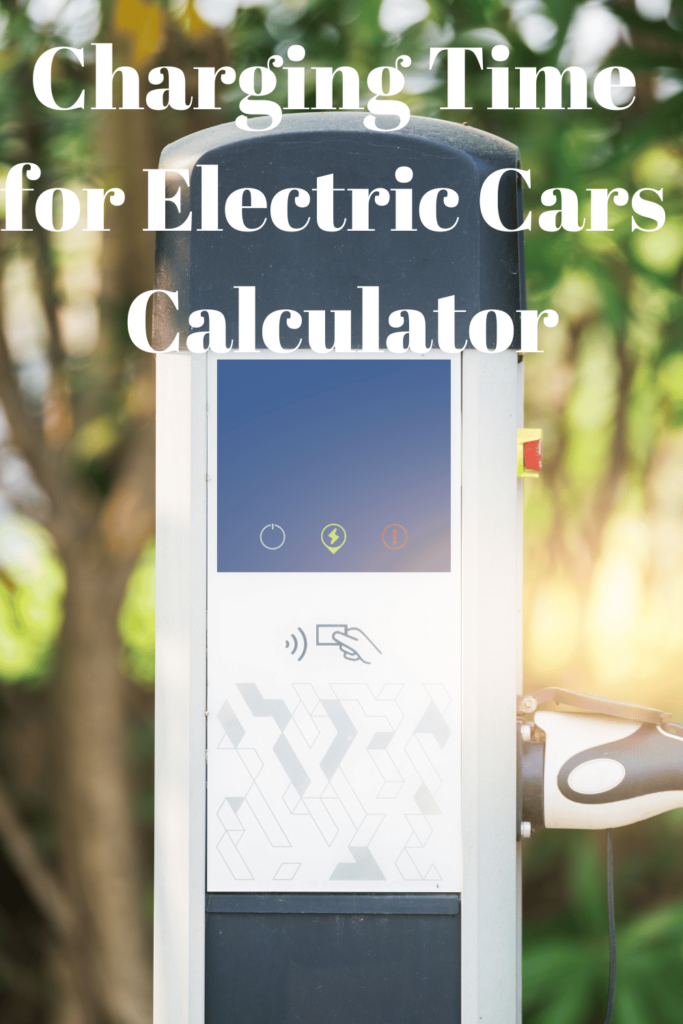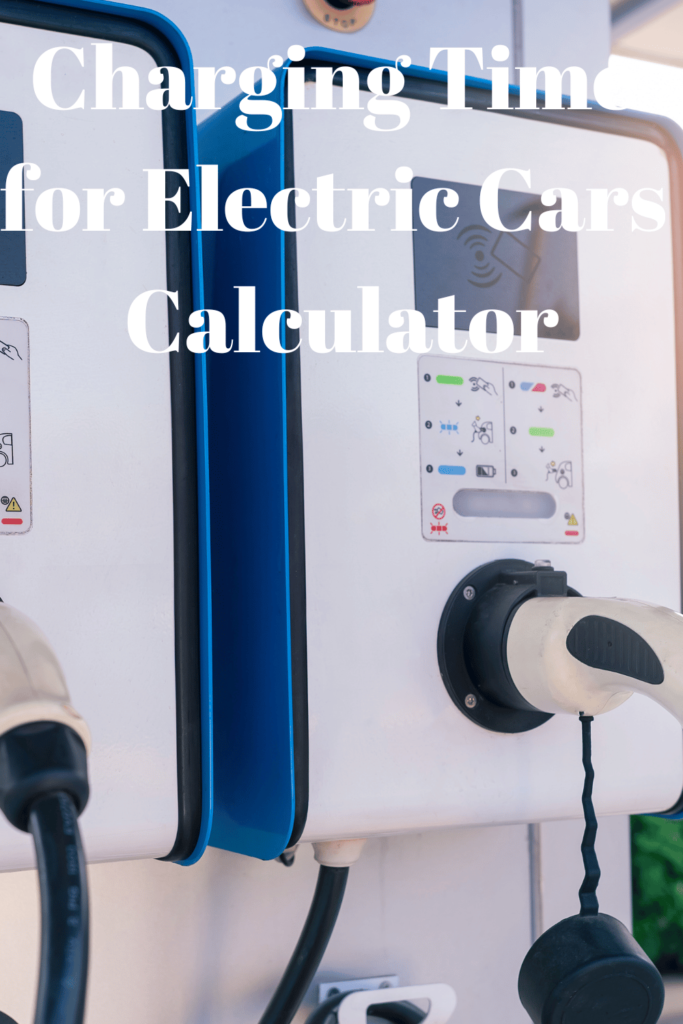Charging Time for Electric Cars Calculator
Step 1: Determine your battery capacity
The first step in calculating the charging time for an electric car is to determine the battery capacity.

The battery capacity is typically measured in kilowatt-hours (kWh) and can usually be found in the vehicle’s documentation or specifications. For example, let’s assume the battery capacity is 60 kWh.
Step 2: Determine the charging efficiency
Charging efficiency refers to the amount of energy that is lost during the charging process. It is important to consider because it affects the actual amount of energy that reaches the battery. Charging efficiency is typically given as a percentage and can vary depending on the charger and the vehicle. Let’s assume a charging efficiency of 90%.
Step 3: Determine the charger specifications
Next, you need to determine the specifications of the charger you are using. In this guide, we will focus on Level 2 charging, which is one of the most commonly used and widely available charging methods for electric cars. Level 2 chargers typically provide power at 240 volts and can have different maximum power outputs, measured in kilowatts (kW). Let’s assume we have a Level 2 charger with a maximum power output of 7.2 kW.
Step 4: Calculate the charging time
To calculate the charging time, you can use the formula:
Charging time (hours) = Battery capacity (kWh) / (Charger power output (kW) * Charging efficiency)
In our example:
Charging time (hours) = 60 kWh / (7.2 kW * 0.9) = 9.26 hours
So, the charging time for our electric car using a Level 2 charger would be approximately 9.26 hours.
Step 5: Optimize charging time
To optimize charging time and maximize convenience, there are a few tips and considerations to keep in mind:

- Upgrade to a higher-power charger: If possible, consider upgrading to a Level 2 charger with a higher maximum power output. This will allow for faster charging times.
- Charge during off-peak hours: Take advantage of off-peak electricity rates if available. Charging your electric car during periods of lower demand can be more cost-effective and may also result in faster charging due to lower electricity usage in your area.
- Manage battery levels: Aim to keep your battery level within the recommended range, typically between 20% and 80%. Charging from a lower level to a higher level can take longer, so it can be more efficient to top up your battery more frequently.
- Plan ahead: If you know you will be driving a long distance the next day, consider charging overnight to ensure a full charge by the time you need to leave.

Overall, by considering these factors and following these tips, you can optimize your charging time and maximize convenience as an electric car owner.
